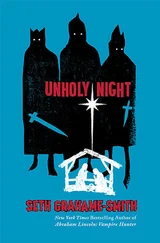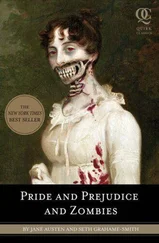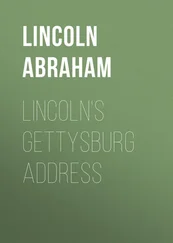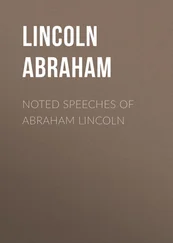White concluded that Howe was shot with sixteen “arrowes” because the body had sixteen small puncture wounds in it.
“In truth, no arrows were found in or near Mr. Howe. Governor White also omitted an important detail from his record—that the body had already begun to decompose, even though Mr. Howe had only been dead several hours before being discovered.”
On August 18th, the colony turned its thoughts from the Croatoan and rejoiced at the arrival of its first baby, Virginia Dare—John White’s granddaughter. She was the first English baby born in the New World, and like her mother, possessed a shock of red hair. The birth was attended by the colony’s only doctor, Thomas Crowley.
“Crowley was a plump, balding man of fifty-six. Tall in stature, he had a kind, pockmarked face, and a well-known love of jokes. For this and his skill as a physician he was held in high regard, and few things gave him a greater thrill than making a patient forget his troubles in laughter.”
Satisfied that his colony was off to a strong start (the unpleasantness of Mr. Howe’s demise notwithstanding), John White sailed back to England to report on their progress and bring back supplies. He left behind 113 men, women, and children—including his infant grandchild, Virginia. If all went well, he would return in several months with food, building materials, and goods to trade with the natives.
“All did not go well.”
A series of events conspired to keep John White in England for the next three years.
First, his crew refused to sail back during the dangerous winter months. The summer crossing had been dangerous and deadly enough. Unable to find a replacement crew, White endured what must have been a maddening, worrisome winter. By the time spring finally arrived, England was at war with Spain, and Queen Elizabeth needed every worthy ship at her disposal. That included the vessels White had planned to take back to the New World. He scrambled and found a pair of smaller, older ships that Her Majesty didn’t require. But shortly into the voyage, both of these were captured and plundered by Spanish pirates. With no supplies left for his colonists, White turned around and headed back to England. The war with Spain raged on for two more years, leaving John White stranded in his home country, endlessly frustrated. In 1590 (having given up on bringing back supplies), he was finally able to secure passage on a merchant ship. On August 18th, his granddaughter Virginia’s third birthday, he set foot on Roanoke Island once again.
They were gone.
Every last man, woman, and child. His daughter. His baby granddaughter. The Barringtons. Gone. His colony had simply vanished into thin air. The buildings remained exactly as they had been (though weather-beaten and overgrown). Tools and supplies were exactly where they belonged. Surrounded by rich soil and abundant wildlife, how could they have starved? If there was some kind of pestilence, where were the mass graves? If there was a battle, where were signs? It didn’t make any sense.
There were only two clues of any note: the word “Croatoan” carved into one of the fence posts of the perimeter wall, and the letters “CRO” carved into the bark of a nearby tree. Had the Croatoan attacked the colony? It seemed unlikely. They would have burned it to the ground, for one thing. And there would be bodies. Evidence. Something . White guessed (or hoped, anyway) that the cryptic carvings meant the colonists, for whatever reason, had resettled on nearby Croatoan Island. But he wouldn’t get a chance to prove his theory. The weather was taking a turn for the worse, and the crew of his merchant ship refused to remain any longer. After three years spent trying to return, and only a few hours on dry land, he was given a choice: return to England and try to mount another expedition, or be left to fend for himself on a strange continent with no idea where his countrymen were—or if they were alive at all. White sailed away, never to set foot in the New World again. He spent the rest of his days haunted by grief, guilt, and above all, bewilderment over the disappearance of his 113 colonists.
“I think,” said Henry, “that it is better he never learned the truth.”

Shortly after Governor White’s first return to England, the people of Roanoke were beset by a strange illness, which produced an acute fever in its victims. This fever led to delusions, coma, and eventually death.
“Dr. Crowley thought the disease a native one. He was powerless to curb its effects. In the three months following Governor White’s departure, ten of us succumbed to this plague. In the three months after that, a dozen more. Their bodies were carried a distance into the woods and buried, lest the sickness contaminate the soil near our settlement. We grew ever more fearful that ours would be the next body carried off. A near-constant vigil was kept on the island’s eastern shore, in hopes that sails would soon be spotted there. But none were. It is likely that things would have continued thus, had not the hideous discovery been made.”
Eleanor Dare couldn’t sleep. Not while her husband fought for his life a mere fifty yards away. She dressed, wrapped sleeping baby Virginia in a blanket, and walked through the freezing air to Dr. Crowley’s building, resigned to spending a restless night by her husband’s side in prayer.
“Upon entering, Mrs. Dare was met with the ghastly sight of Crowley with his mouth around her husband’s neck. He withdrew and presented his fangs, drawing screams from her. Thus alerted, several of our men ran into Crowley’s building with their swords and crossbows, only to find the woman slaughtered, and the infant Virginia in the vampire’s claws. Crowley warned the men to retreat. They refused. Having no knowledge of vampires, the men perished at once.”
Their screams woke the rest of the colonists, including Henry.
“I dressed and told Edeva to do the same, thinking it an attack by the natives. I charged into the night with my pistol determined to protect my home to the last. But on reaching the clearing in the center of our village, I was met with an incredible sight. A terrifying sight. Thomas Crowley—his eyes black, a pair of white razors in his mouth—tearing Jack Barrington in half, spilling his innards everywhere. I saw friends scattered on the ground. Some with limbs missing. Some with heads missing. Crowley took notice of me and advanced. I leveled my pistol and fired. The ball found its mark, piercing the center of his chest. But this failed to slow him in the least. He continued to advance. I am not ashamed to admit that all courage left me. I could think only of escape. Only of Edeva, and the unborn child in her belly.”
Henry turned and ran the fifty yards home as fast as he could. Edeva was already waiting in the doorway, and he hardly slowed as he grabbed her hand and continued toward the tree line. The coast. Let us make haste to the coas —
“I could hear him running behind us. Each step breaking the earth. Each one closer than the last. We ran into the trees. Ran until our lungs burned—until Edeva began to slow, and I felt his steps behind us.”
We will never see the coast.
“I remember none of it. Only that I woke on my stomach and knew at once that my wounds were mortal. My body lay shattered—my limbs all but useless. Dried blood over my eyes rendering me half blind. By the sound of Edeva’s labored breath, I knew that she was even closer to the end than I. She lay on her side, her yellow dress stained with blood. Her yellow hair matted with it. I dragged myself to her with two broken arms. Dragged my eyes close to hers—open and distant. I ran my hand through her hair and simply looked at her. Simply watched her breathing slow, all the while whispering, ‘Don’t be afraid, love.’ And then she stopped.”
Читать дальше













